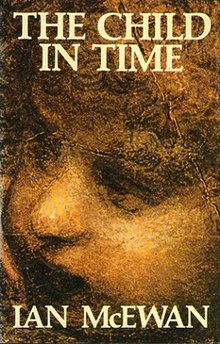I mentioned this novel in passing in my review of Howard Jacobson’s The Finkler Question earlier this month, so when I came across it in a local second-hand bookshop it seemed like fate. I’ve gone off Kingsley Amis over the years. I started out as a big fan – I loved Lucky Jim – but the more I read of him, and about him, the less I liked his attitudes to women and ethnic minorities, and the more I saw those attitudes reflected in his novels, particularly those he published towards the end of his career. These novels, such as Stanley and the Women and Jake’s Thing often degenerated into self-parodies in which the central character bore a strong resemblance to Amis himself, who always wound up in bed with the young and attractive women characters.

I am glad to say The Alteration is an exception to that rule. It is an alternative history novel set in an England where the reformation never took place. Writers of alternative histories usually chose more recent historical events as the moment from which to diverge their timelines. Sarajevo 1914 perhaps, the various turning points of the second world war (for example, Philip K Dick’s The Man in the High Castle) or the rise of fascism in the 1930’s (for example Sinclair Lewis’s It Can’t Happen Here or Philip Roth’s The Plot Against America). Here Amis goes all the way back to Tudor England. Henry 7th first son, Arthur Tudor, Prince of Wales, married Catherine of Aragon in 1501 and died less than a year later, leaving Henry 8th to inherit the throne. Whether their marriage was ever consummated became a fierce point of contention after Arthur’s death and Catherine’s remarriage to Henry. Amis imagines that Arthur didn’t die prematurely and that he and Catherine went on to have a son who becomes king. This is the butterfly effect moment from which a whole series of changes to English and world history flow – no break with Rome, no Church of England, and no Reformation.
The world of 1976 is recognisable but very different to our own as these changes have rippled across the world. Catholicism is the dominant religion across Western Europe, with a muted version of Protestantism existing only in North America, now the Republic of New England. Ireland is “West-England” and Scotland “North-England”. The English Isles are a theocracy run by the priesthood with church law brutally enforced by the Holy Office, a secret police. In this timeline Himmler and Beria are mentioned as priests doing god’s work by suppressing dissent and punishing apostasy – Amis’s point being evil will always find means of coming to the surface.
Europe has emerged very differently without the Reformation. Royal families still rule Portugal, Sweden, France and Russia, and the Italian and Germany nation-states have not formed (due, it is implied, to the strength of the Papacy). Western Europe is in perpetual conflict with the Ottoman Empire, in a manner very reminiscent of both the wars of 1984 and the Cold War. This long-running conflict serves to give the people a common enemy and even more cynically acts as a way of keeping the population in check. The novel portrays the papacy as a brutal manipulator of geo-political forces, cynically engineering war to help keep the population under control when more direct biological warfare experiments have failed.
Culture and the arts have also developed very differently in this alternative world, although again Amis insists that the great artists would have emerged one way or another. Shakespeare’s plays are banned but survived and are performed in New England. Shelley, Mozart, Beethoven, Blake, Hockney and Holman Hunt are all named-checked but are now religious writers or musicians in the service of the Church. The other significant difference in this world is the approach to technology. “Science” is disapproved of by the church, electricity is banned, and planes are yet to be invented. Instead steam is the dominant technology – this is literally a steam-punk world.
This is all by way of background to the fairly slight novel’s plot. The title refers not simply to the altered world but also to one specific person in it, namely Hubert Anvil, a ten-year old chorister. He has the voice of an angel and the Church decides to preserve it from the predations of puberty by castrating him. The history of castrati and the involvement of the Catholic Church in the practice of castrating young men to preserve their high voices is a fascinating one – the last known castrati died only 100 years ago. This is not a novel where the pros and cons of allowing young boys to be castrated are weighed carefully – Amis is clear this is an abomination, a form of abuse derived from the Church’s distorted attitudes towards sex. (The vows of chastity taken by members of the church and its hierarchy are clearly widely ignored.) The narrative core of the novel follows Hubert’s attempts to evade this fate, running away to London and seeking help from the New England ambassador. Amis deploys a crude deus ex machina to end the novel, suggesting that he loses interest in his characters once his points about the church and its damaging role in society had been scored.
Amis really commits to his concept, and paints a very detailed picture of life at all levels in his alternative timeline. It’s this exploration that seems to interest him, and the narrative in which Hubert runs away is not that exciting or convincing. The author makes his views on the Catholic church’s attitudes towards sexuality very clearly, and the reader is left in no doubt about the dangers of mixing church and state. The absence of adulterous middle-aged avatars for Amis and his friends was a bit of a relief, even if The Alteration was to prove a short term diversion from the main business of grumpily chronicling yet another alcoholic affair.




